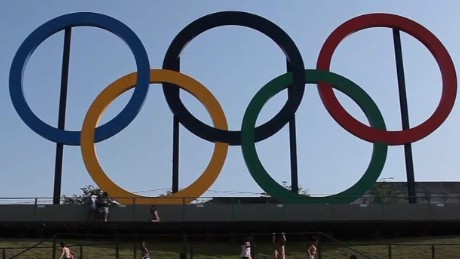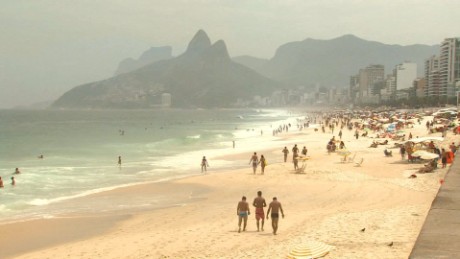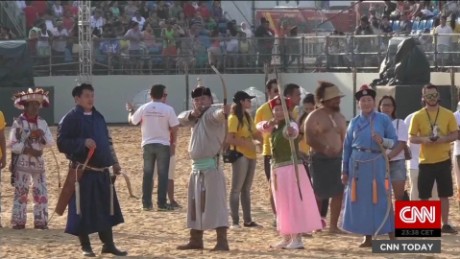
Rio 2016: After Paris, how prepared is Rio to secure the Olympics? – CNN
The plan currently calls for 65,000 police and troops to secure the Games in Rio and key locations where competitions will take place, with a contingency force of 15,000 personnel that can be called upon. In London, 40,000 agents were used.
“At this point our understanding of the level of risk hasn’t changed,” said Beltrame, though he admitted that they could turn to the contingency force if delegations requested a higher security presence.
However, not everyone shares Beltrame’s optimism.
At an event in Rio organized by the Justice Ministry, a government auditor said there were “flaws” in border security that needed to be corrected over the next seven months.
Porous borders
Brazil has some 23,000 kilometers of sea and land borders that it shares with 10 countries. There are few controls in the sparsely-populated regions, part of the reason why Brazil has struggled to combat drug and arms trafficking.
Paulo Storani, an international security consultant and former captain of Rio’s Special Ops Police, says Brazil’s assumption that it is a peaceful country and its lack of intelligence expertise combine to make it a target.
“There is no doubt that if somebody has been plotting against the Olympic Games, they are already in Brazilian territory,” Storani told CNN.
“Soldiers are going to be spread out among the Olympic structures and tourist sites to prevent crimes or attacks,” he added.
“But anything that was planned, likely won’t be impeded by more forces on the ground, they have to be prevented by intelligence before they happen.”
Another contentious issue is a visa-waiver scheme.
In order to attract more tourists, Congress approved a 90-day visa waiver for foreigners during the Games. But after the Paris attacks, many had hoped Brazil president Dilma Rousseff wouldn’t sign the bill — including Rio’s security chief.
“I personally think that visas help register people and create a databank so we know their whereabouts,” Beltrame said.
The scheme was also criticized by General Jose Carlos de Nardi, who had been the military point man for Olympics security.
Nonetheless, just last week, Rousseff signed the measure and now it has been announced that De Nardi is to be replaced.
The scope of the program will likely be limited to a specific handful of countries such as the United States, Japan and Australia, when it is published.
Officials insist that they have experience of securing international events such as the 2014 World Cup and the visit of Pope Francis the year before.
The biggest incidents during those events were rowdy fans breaking into stadiums and adoring followers rushing the Pope’s motorcade.
Even so growing concerns over terrorism could mean a shift in focus for police and troops on the ground.
The major operations in Rio have been aimed at cleaning up violent favelas — precarious neighborhoods long controlled by drug traffickers — and fighting crime in popular tourist zones.
There have been anti-terrorism training sessions, simulating chemical attacks and defusing bombs.
And in a recent exercise with French police, they also practiced techniques aimed at containing riots and protests.
But, as French police lieutenant Anne-Christine Poinchon pointed out, crowd control has taken on a whole new meaning after the Paris attacks.
“You can’t be prepared enough,” said Poinchon. “For example, there were 80,000 spectators in the Stade de France. There wasn’t enough police to deal with the panic. We weren’t prepared for it.”





